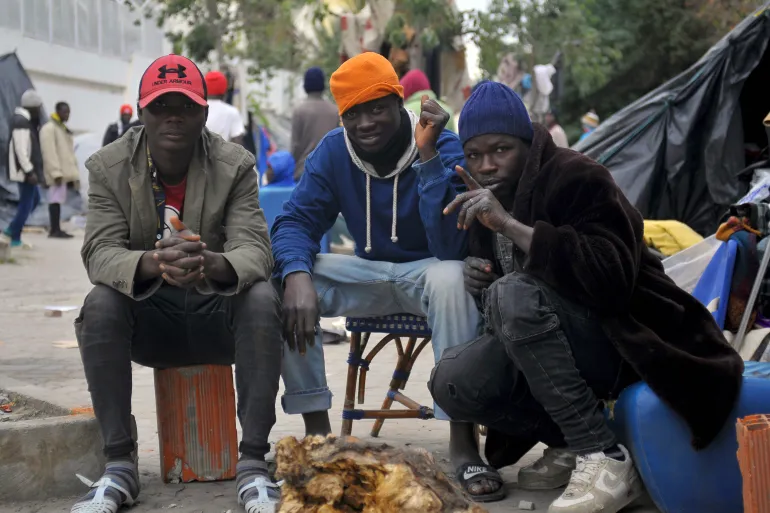Almost 300 people returned to Mali and Ivory Coast on Saturday after boarding repatriation flights from Tunisia, where they had been living as undocumented migrants. The mass exodus was triggered by the Tunisian President’s recent tirade against migrants, which has fueled a wave of violence and discrimination against them.
Last month, President Kais Saied ordered officials to take “urgent measures” to tackle irregular migration, claiming without evidence that “a criminal plot” was underway “to change Tunisia’s demographic makeup”. He accused migrants of being behind most crime in the country, prompting a spate of sackings, evictions, and attacks.
The African Union expressed “deep shock and concern” at his remarks, while governments in sub-Saharan Africa scrambled to bring home hundreds of frightened nationals who flocked to their embassies for help.
The situation in Tunisia has become increasingly dire for migrants since Saied’s speech on February 21. Rights groups have reported a spike in vigilante violence, including the stabbings of African migrants. Many have lost their jobs and homes overnight, and dozens have been arrested after identity checks, with some still being detained.
The exodus from Tunisia has been met with mixed reactions from the countries receiving the returning migrants. In Mali, a group of 135 nationals arrived in Bamako, where they were welcomed by Defence Minister Sadio Camara and the minister for Malians living abroad Alhamdou Ag Ilyene. The minister said 97 men, 25 women, and 13 children had been on board.
In Abidjan, a flight carrying 145 passengers also landed late on Saturday. They were welcomed by Prime Minister Patrick Achi and several ministers and taken to a reception center, where they will spend three days receiving medical and psychological care before being reunited with their families.
For many of the migrants, the decision to return home was not an easy one. Adrahmen Dombia, who arrived in Tunisia four years ago, said he had to stop his university studies mid-year. “I’m going back because I’m not safe.” Another Malian migrant, Baril, said he had a permit to stay in Tunisia but joined the repatriation flight anyway.
“We ask President Kais Saied with great respect to consider our other brothers and treat them well,” he said.
The situation in Tunisia has highlighted the ongoing struggle faced by many African migrants seeking better lives in other countries. According to official figures, there are around 21,000 undocumented migrants from other parts of Africa in Tunisia, a country of around 12 million people.
The plight of these migrants has been compounded by the Covid-19 pandemic, which has forced many countries to close their borders and restrict travel. As a result, many migrants have found themselves stranded and unable to return home.
Critics have accused Saied of seeking to install a new dictatorship in Tunisia, which is grappling with inflation and shortages of essential goods. The President’s crackdown on migrants has been seen by some as a way to distract from these pressing domestic issues.
The situation has also highlighted the need for greater regional cooperation and a coordinated response to the challenges faced by migrants across the continent. While the African Union has expressed its concern over the situation in Tunisia, there is a need for more concrete action to be taken to protect the rights of migrants and ensure their safety and well-being.
The exodus of migrants from Tunisia also raises important questions about the nature of migration in Africa and the underlying factors driving people to leave their homes in search of better opportunities. Poverty, conflict, and political instability continue to be major drivers of migration across the continent, and these issues need to be addressed if we are to see a reduction in the number of people forced
Image Credit: Hassene Dridi/AP




